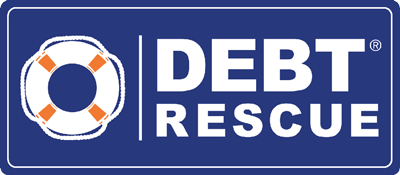The internet is a wonderful thing because it brings all the knowledge in the world to your fingertips. As technology advances, people keep finding new ways to use the internet and unfortunately thieves are no different. According to the Australian Competition and Consumer Commission Scamwatch website an estimated $77,123,877 was stolen in 2016 through 144,433 reported online scams. These elaborate schemes range from inheritance scams to unexpected winnings to scams run through dating and romance websites.
With many scammers based overseas, it can be very tricky to recover any money lost through online scams. This article will help you identify, avoid and report anything you think might be a scam to save you and others from losing your money.
Some Common Signs of a Scam
Scams come in many shapes and forms. There are inheritance scams, investment scams, job scams, charity scams, unexpected prize scams, identity theft scams, buying/selling scams, government scams and even fake dating profile scams. In fact it's fair to say that nothing is exempt from a scammers toolbox. Lucky for us, all scams have some common elements which are a tell-tale giveaway if you know what you are looking for.
Spelling and grammar - Many scammers are based overseas so the emails and letters they send are written in broken English and are riddled with spelling and grammatical errors. The email might also use several large words or industry jargon to try to throw off the recipient or sound more official. If the email doesn't flow, put up a warning flag.
Unsolicited and out of the blue - scammers get their hands on a mailing list by hacking other websites or buying old data lists. The scams you receive will be completely out of the blue and unsolicited. For example, you might receive an email from a company saying you have won a prize in a competition you didn't even enter. Chances are it's a scam - you've got to be in it to win it.
Asking for Something - scammers will always be asking you for something. At first it might be as simple as a reply to gauge your interest. The more involved the scam gets, the more they will ask of you. They could ask you for your personal details, a signed copy of personal documents, your bank details or they could even straight up just ask you to send them money. You should never provide any personal details over the phone or via email. Identity theft can be just as damaging as financial theft. Also, you should never send money overseas via wire transfer, money order, international funds transfer, pre-loaded card or electronic currency. It is near impossible to recover money sent this way.
Always Double Check
So you've never heard of an Uncle Albert, but he has left you more than $4 million in his will. There are signs of a scam here, but you aren't quite ready to dismiss this possibility and potentially miss out on the money. Scammers are scammers because they are good at what they do. If they pick up on any kind of interest from you they will pursue you, persuade you and pester you until you do what they want.
If you do want to follow up on something you aren't sure is a scam, there are other ways to double check before writing a response to a potential scammer:
Speak to a lawyer - If the email you have received involves any kind of family law, inheritance, unexpected prizes or even gaining money through a charity, run it past a lawyer. They will be able to tell you if the proposed idea is legal and legitimate or if what the sender has proposed to you is a load of nonsense.
Check online - The internet is a wonderful place and as hard as scammers are working to take your money, other people are working to expose their lies. Copy and paste a few sentences from the email you have received into a Google search and see what pops up. You might find Uncle Albert had tens of thousands of long lost nieces and nephews. You can also visit sites like Scamwatch which not only lists the different kinds of scams, but also provides examples of the correspondence people have been receiving.
Ask a friend or family member - You might be excited by the idea of coming into some money, but savvy friends and family won't be biased and if they smell a rat, they will let you know. Ask someone you trust to read over any correspondence to help you decide if it's legitimate or not.
Be aware of the law - This one is hard, because unless you studied it at uni, how would you know the inner workings of Australian Law? Enter Google. For example, Google will tell you that companies in Australia cannot ask for an upfront payment from you before releasing funds to your name. So if someone is demanding you send them $1000 before they send you $10,000 in return, you can rest assured it is a scam
What to do if You Think You are Being Scammed
Cyber crime often goes unpunished. It can be difficult for the Australian Authorities to track, find and prosecute scammers, especially if they are based overseas because that means they are operating outside Australian Laws. But that doesn't mean we should just let a scam attempt slide.
If you have received a strange email or you think someone is attempting to scam you, report them! Keep a copy of the correspondence to forward on to the police and share a copy with Scamwatch. It is important not to engage the scammers any further so stop any kind of contact.
Unfortunately, some people only realise they are victims of an online scam after they have parted with their money and they don't receive what was promised in return. Even if you have cut your losses and copped this one on the chin, it is worth reporting. Even if nothing can be done to help your situation, you reporting the scam could save others from being stung.
-137x60px.png)




